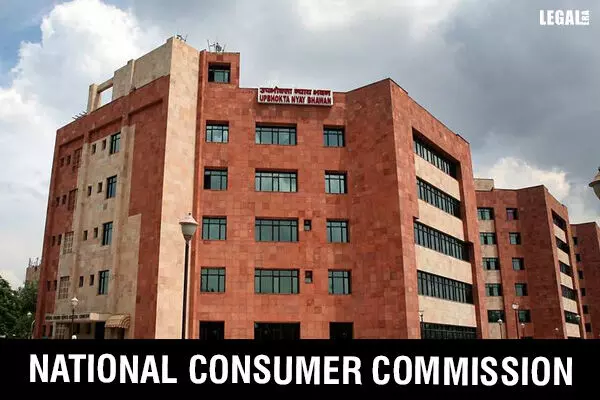- Home
- News
- Articles+
- Aerospace
- Artificial Intelligence
- Agriculture
- Alternate Dispute Resolution
- Arbitration & Mediation
- Banking and Finance
- Bankruptcy
- Book Review
- Bribery & Corruption
- Commercial Litigation
- Competition Law
- Conference Reports
- Consumer Products
- Contract
- Corporate Governance
- Corporate Law
- Covid-19
- Cryptocurrency
- Cybersecurity
- Data Protection
- Defence
- Digital Economy
- E-commerce
- Employment Law
- Energy and Natural Resources
- Entertainment and Sports Law
- Environmental Law
- Environmental, Social, and Governance
- Foreign Direct Investment
- Food and Beverage
- Gaming
- Health Care
- IBC Diaries
- In Focus
- Inclusion & Diversity
- Insurance Law
- Intellectual Property
- International Law
- IP & Tech Era
- Know the Law
- Labour Laws
- Law & Policy and Regulation
- Litigation
- Litigation Funding
- Manufacturing
- Mergers & Acquisitions
- NFTs
- Privacy
- Private Equity
- Project Finance
- Real Estate
- Risk and Compliance
- Student Corner
- Take On Board
- Tax
- Technology Media and Telecom
- Tributes
- Viewpoint
- Zoom In
- Law Firms
- In-House
- Rankings
- E-Magazine
- Legal Era TV
- Events
- Middle East
- Africa
- News
- Articles
- Aerospace
- Artificial Intelligence
- Agriculture
- Alternate Dispute Resolution
- Arbitration & Mediation
- Banking and Finance
- Bankruptcy
- Book Review
- Bribery & Corruption
- Commercial Litigation
- Competition Law
- Conference Reports
- Consumer Products
- Contract
- Corporate Governance
- Corporate Law
- Covid-19
- Cryptocurrency
- Cybersecurity
- Data Protection
- Defence
- Digital Economy
- E-commerce
- Employment Law
- Energy and Natural Resources
- Entertainment and Sports Law
- Environmental Law
- Environmental, Social, and Governance
- Foreign Direct Investment
- Food and Beverage
- Gaming
- Health Care
- IBC Diaries
- In Focus
- Inclusion & Diversity
- Insurance Law
- Intellectual Property
- International Law
- IP & Tech Era
- Know the Law
- Labour Laws
- Law & Policy and Regulation
- Litigation
- Litigation Funding
- Manufacturing
- Mergers & Acquisitions
- NFTs
- Privacy
- Private Equity
- Project Finance
- Real Estate
- Risk and Compliance
- Student Corner
- Take On Board
- Tax
- Technology Media and Telecom
- Tributes
- Viewpoint
- Zoom In
- Law Firms
- In-House
- Rankings
- E-Magazine
- Legal Era TV
- Events
- Middle East
- Africa
Self-Employed Business Owner Denied Consumer Protection in Real Estate Dispute by Consumer Panel

Self-Employed Business Owner Denied Consumer Protection in Real Estate Dispute by Consumer Panel
The National Consumer Disputes Redressal Commission (NCDRC), presided over by Justice Ram Surat Maurya (presiding member) and Bharatkumar Pandya (member), has dismissed a complaint against MVL Holding Ltd. The case centred on whether a business owner booking commercial space qualifies as a "consumer" under India's consumer protection laws.
The complainant, aiming to run a business, booked five units (apartments) in a project developed by MVL Holding/Real Estate Company through separate agreements. They claimed to have paid the entire sum of ₹2,21,01,870 for all five units. Although the apartments were completed, the real estate company allegedly failed to execute a lease deed despite repeated requests. Further, the company reportedly rented out the booked units, paying rent to the complainant only until September 2016. Dissatisfied with the lack of a conveyance deed and the cessation of rent payments, the complainant filed a police complaint and then initiated this consumer complaint.
The complainant sought relief for:
• Repayment of ₹37,776,108 as per the statement of account.
• Compensation of ₹2 crore for lost business opportunities due to blocked funds.
• ₹1 crore compensation for mental agony.
• Coverage of litigation expenses.
• Any other suitable orders based on the case's circumstances.
MVL Holding Ltd. contested the complaint primarily on the grounds of maintainability. They argued that the complainant, who booked the units for commercial purposes, is not considered a "consumer" under the Consumer Protection Act. They highlighted the complainant's admission of paying consideration for the units and explained that they arranged a tenant and adjusted six months' rent against the outstanding consideration.
The NCDRC considered the Supreme Court's ruling in Laxmi Engineering Works Vs. P.S.G. Industrial Institute (1995), which clarified the distinction between "commercial purpose" and "earning livelihood by means of self-employment." While "commercial purpose" is not explicitly defined, it generally applies to large-scale buying and selling. However, the Consumer Protection Act excludes transactions "exclusively for earning livelihood through self-employment" from this definition. Therefore, a buyer purchasing commercial goods for self-employment, using them for their business with the assistance of a limited number of people, can be considered a "consumer."
The Commission examined the facts of the case. Both parties agreed that the complainant purchased five IT/Cyberspaces in a multi-storied commercial complex. These agreements stipulated usage solely for IT/Cyber purposes, as permitted by the government. Further, the complainant had a lease agreement with a software development company that would commence rent payments upon full consideration receipt by the developer. These details indicated that the complainant booked the units for commercial purposes, not solely for self-employment.
Based on the aforementioned observations, the NCDRC concluded that the Explanation of Section 2 (7) of the Consumer Protection Act did not apply. Since the complainant was not considered a "consumer" under the Act, the complaint was dismissed as not maintainable.



